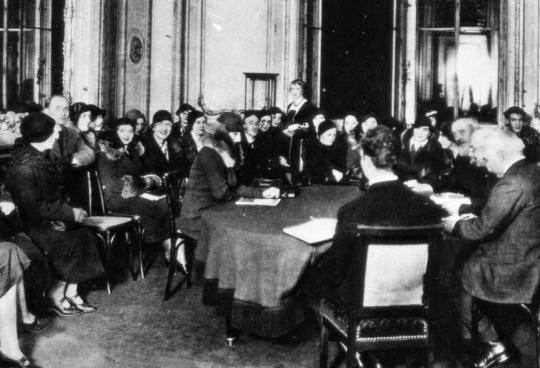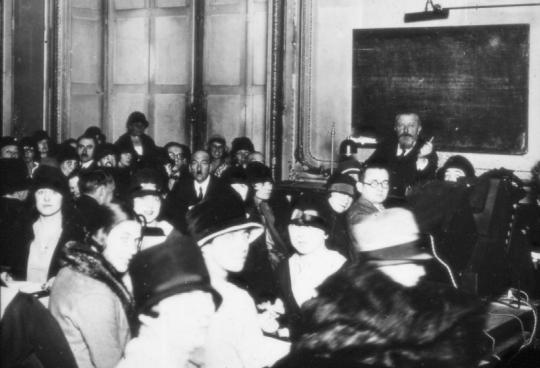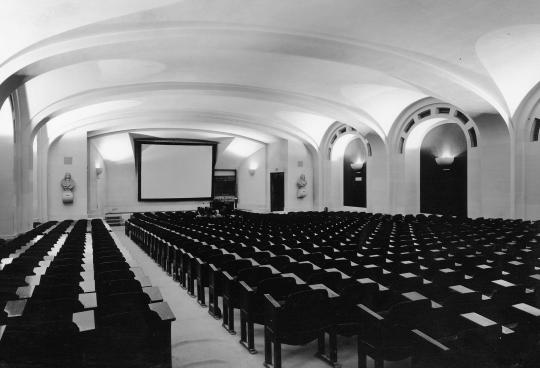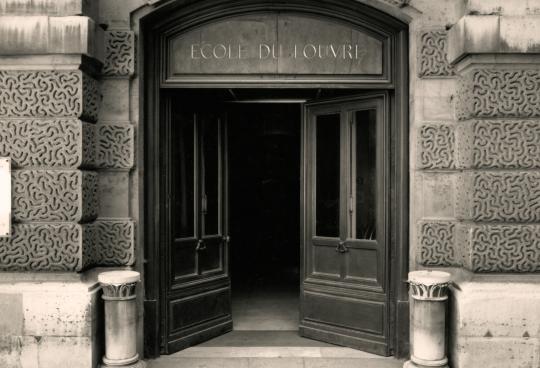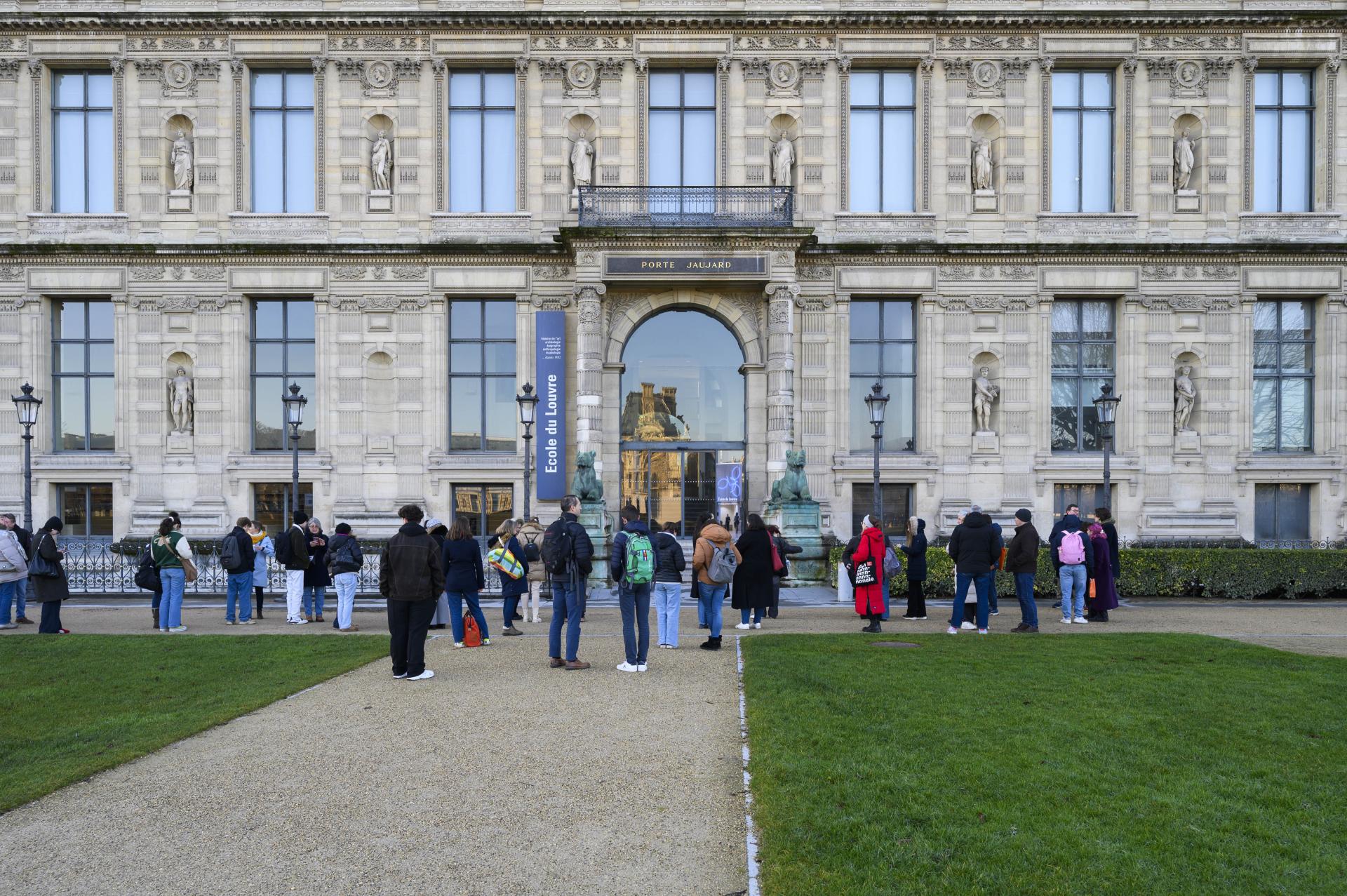
Our history
School presentation
The École du Louvre is a higher education establishment of the French Ministry of Culture, offering courses in art history, archaeology, epigraphy, anthropology and museology.
Founded in 1882, the École is located in Paris, in the heart of the Palais du Louvre.
Its singular pedagogy is based on a sensitive approach and the material study of works and collections, placed in the context of their production and presentation.
It offers its students a curriculum comprising three degree courses and preparatory classes for the competitive examinations for heritage curator and heritage restorer.
Parallel to this training, the École du Louvre:
- allows auditors access to certain courses intended for students (art history and society courses)
- organizes other courses open to a wide audience of auditors: evening classes, summer courses, short cycles, Junior classes, regional courses
(face-to-face and some distance learning) - participates in the training of trainee auctioneers
- organizes scientific symposia, conferences and study days
- publishes textbooks for students and specialized research works
Teaching is given in French and, in some cases, in foreign languages.
All courses are available for continuing education.
Our history
Foundation of the École du Louvre as part of Jules Ferry's great educational project. Its mission at the time was to "draw from the collections, for the instruction of the public, the teaching they contain, and to train curators, missionaries and excavators".
Originally devoted to archaeological disciplines, teaching quickly expanded into other fields of art history.
Creation of the "General History of Art" course, pivotal to the School's teaching, initiated as early as 1902 by Salomon Reinach.
Initiation of the first museum lecture tours.
The School, which has been welcoming auditors since its foundation, created evening classes for a salaried audience under the impetus of Rachel Boyer, a resident of the Comédie-Française. These classes use the latest advances in photographic projection and are broadcast, in 1934, by the TSF.
Creation of the world's first course in museography, a future graduate program.
Creation of the Chair of Modern Art.
Setting up the first practical work.
Creation of summer courses.
Creation of the City of Paris Chair, a free public course dedicated to Parisian artistic heritage.
The first regional courses have now been set up in 11 partner cities.
The École moves into its new premises in the Flore wing of the Palais du Louvre (5000 m²) and enjoys a new status as a public establishment.
Habilitation to master's degree of the graduate diploma.
Launch of the "Equal Opportunity" program in partnership with the Culture and Diversity Foundation.
Creation of the first international master's degree in "Art History and Museology" with the University of Heidelberg.
The École du Louvre is a shareholder in Agence France-Muséums, responsible for bringing the Louvre Abu Dhabi museum project to fruition.
Creation of the "Art History and Museum Professions" Master's degree in Abu Dhabi, as part of the Sorbonne Abu Dhabi and the Louvre Abu Dhabi, in partnership with the UFR d'art et archéologie de l'Université Paris IV Sorbonne.
Creation of the École du Louvre research team.
Creation of the Cahiers de l'École du Louvre, online research journal.
Launch of the École du Louvre 2021-2022 project sponsored by Majid Boustany:
- refurbishment of the library,
- creation of the research center,
- renovation of the documentary and IT areas.
Opening of the Maison des élèves de l'École du Louvre, a student hostel in the heart of Paris.
First online summer courses.
First "Journées de la recherche".
Inauguration of the École du Louvre/Majid Boustany library.
Creation and opening of the Research Center.
Renovation of documentary and IT areas.
Creation of the "Post-Master Research in Art History, Archaeology and Museology" degree.
Creation of the Master 2 course "Sensitive objects, provenances and international issues".
Habilitation to the grade de licence for the first cycle of the École du Louvre.

